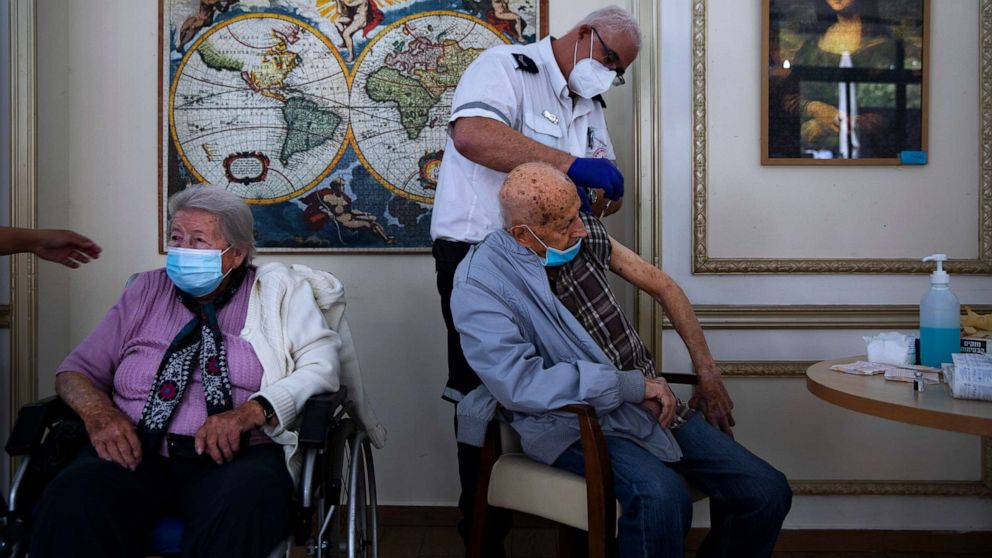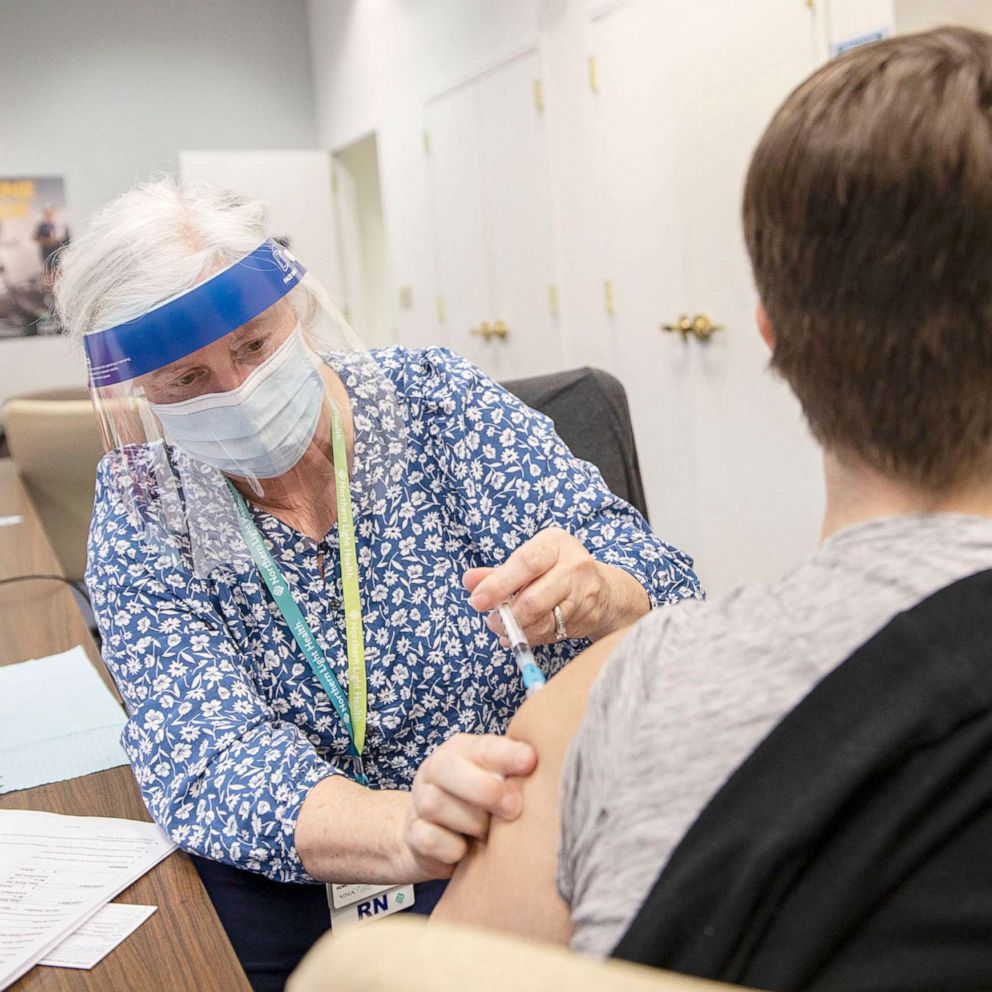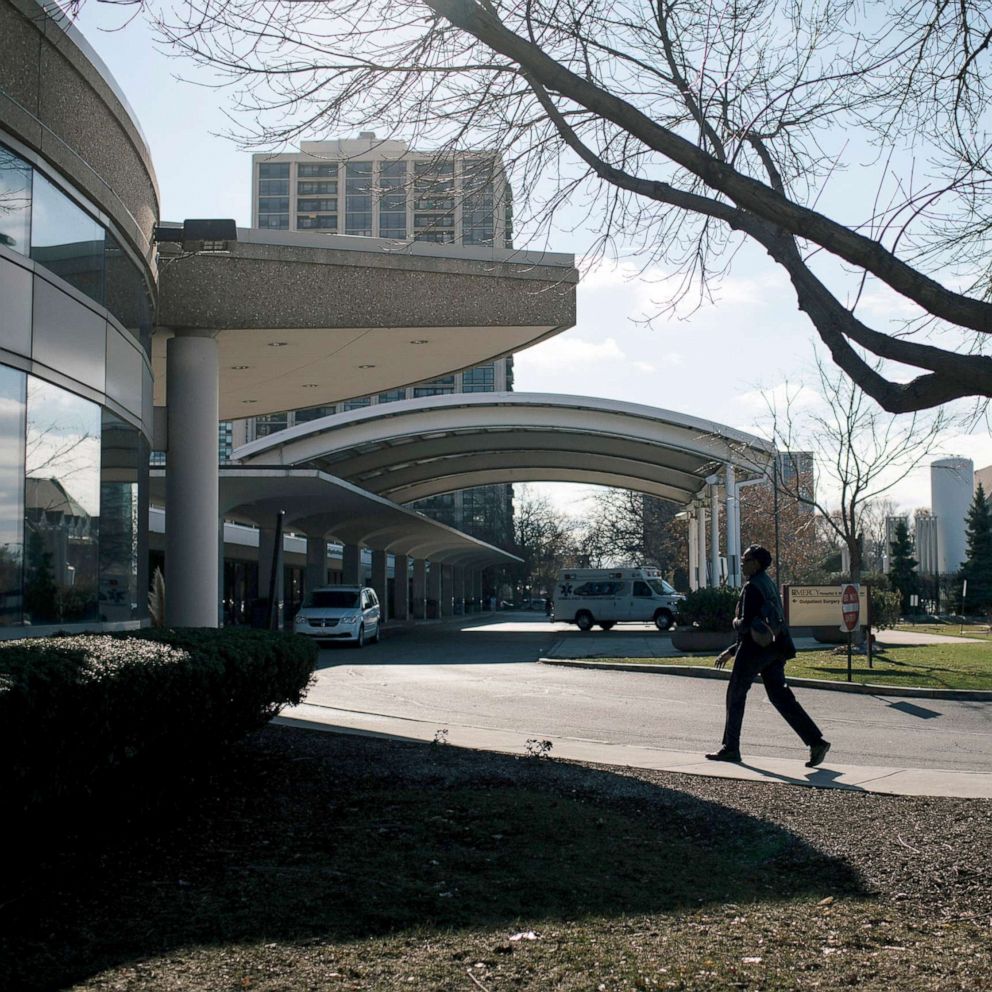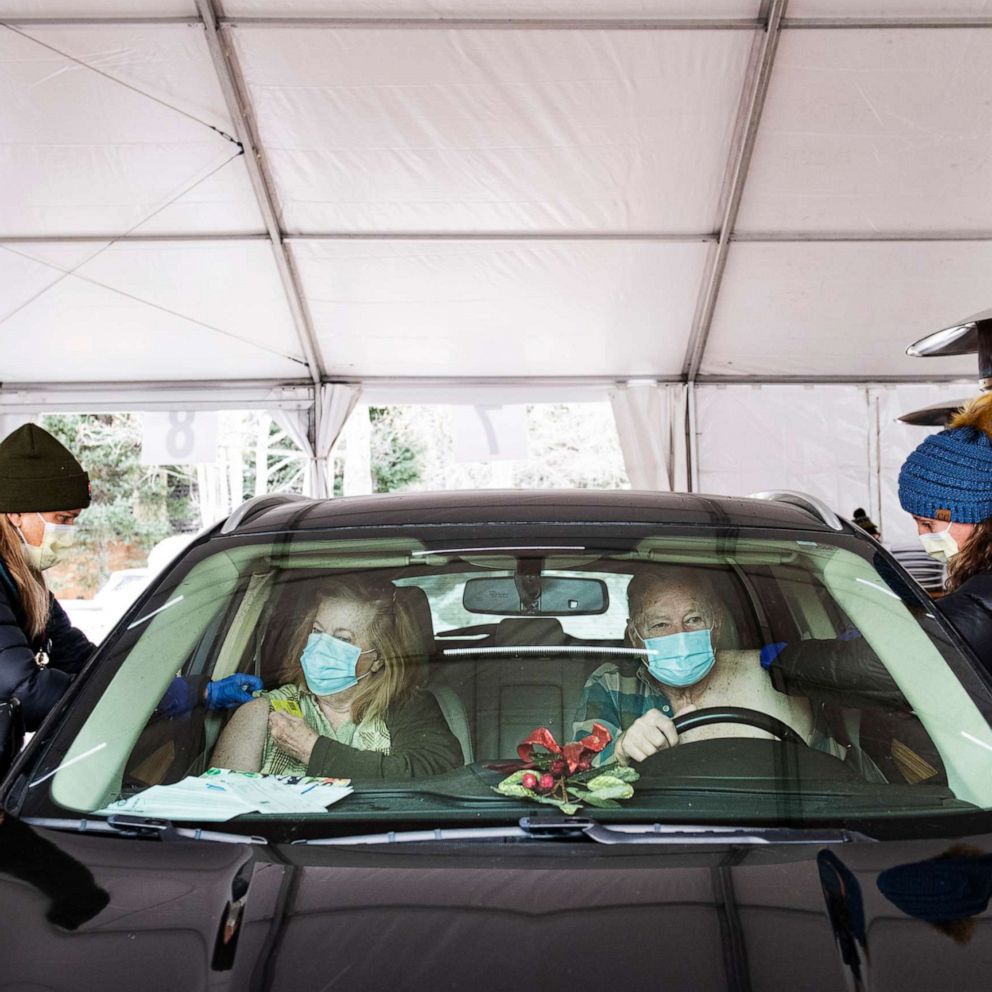What other countries can learn from Israel's COVID vaccine rollout
COVID-19 cases and hospitalizations are falling among vaccinated age groups in Israel, which could be a sign that the nation's rapid vaccination campaign is working.
Israel's vaccination campaign kicked off Dec. 20, giving priority to medical professionals, people with high-risk conditions and adults 60 or older. On Jan. 10, second doses began for those groups, and by Feb. 6, 30% of Israel's entire population -- 80% of individuals 60 or older -- had received two doses of the vaccine.
Today, 32% of Israel's population is fully vaccinated, according to data from Johns Hopkins University. By comparison, the United States has fully vaccinated about 5% of its population.
To examine the effect of widespread vaccinations among older Israelis, researchers from Weizmann Institute of Science, Tel-Aviv University and Technion analyzed Israeli Ministry of Health data on hospitalizations and PCR testing from March 2020 to February 2021.
The researchers found that infections fell among all age groups between between mid-January and mid-February, but the effect was most striking among the largely vaccinated group -- people 60 or older. In the weeks that followed a peak of COVID-19 infections in mid-January, cases among those 60 and older fell 66%, according to an extended dataset sent to ABC News by Uri Shalit, who worked on the analysis.
"Israel is way up there, with 78 doses per 100 people, compared to the United States, which is 16.7 doses per 100 people," Dr. Anthony Fauci said during a White House press briefing on Wednesday. "We have been hearing and seeing in the press that Israel has a remarkable diminution in cases associated with the efficiency of their vaccine."
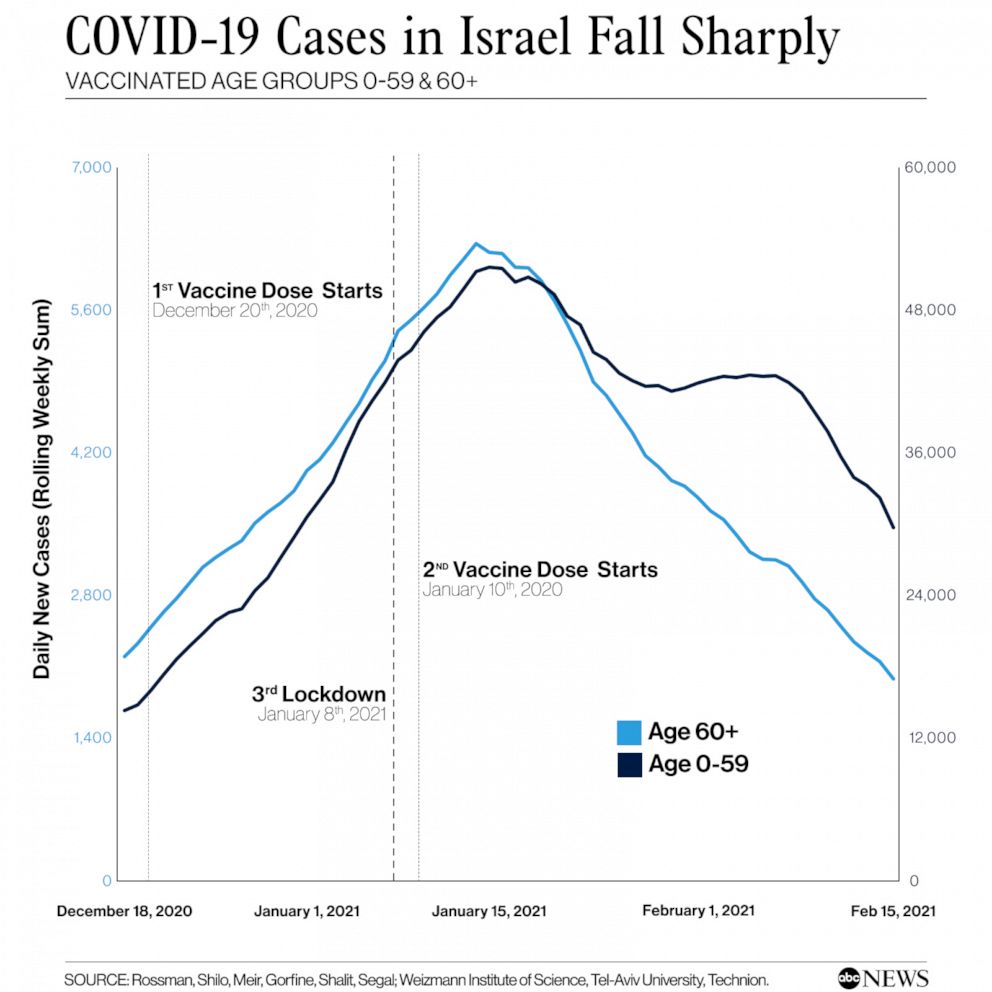
Hospitalizations similarly fell 57% in the vaccinated 60-and-older group.
"It's pretty clear that we're seeing an impact for the populations that got vaccinated," said Shalit, who is an assistant professor at Technion Israel Institute of Technology. As younger age groups are vaccinated and additional data is collected, Shalit said his team is seeing hospitalizations plummet among 50- to 55-year-olds. Since the January peak, hospitalizations have fallen 40% for the 50-to-55 group compared with 10% for those 54 years old or younger.
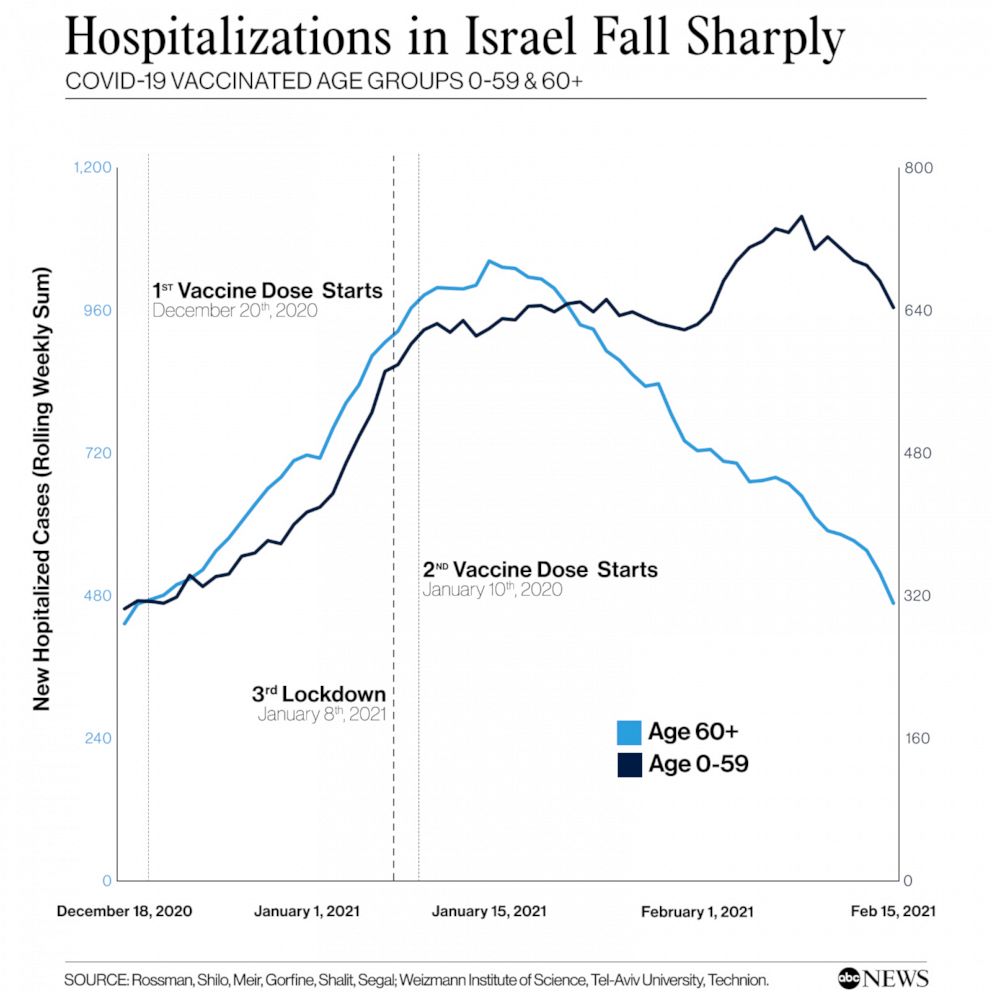
Although vaccinations started in late December, it took until February to see a sharp decline in cases and hospitalizations.
"We thought we'd see the drops earlier," Shalit said. "In Israel, a lot of people were vaccinated and we still saw cases going up. One thing we think is pretty clear is that you need the second dose for protection."
One complicating factor in Israel's vaccination story is that the country went into a national lockdown on Jan. 8, including closing stores, restricting travel and partially shutting down schools. While the lockdown likely had an effect on cases and hospitalizations, groups that were vaccinated earlier are seeing the biggest declines. When the researchers compared cities where people were vaccinated earlier to cities that were vaccinated later, the drop came earlier for the cities that vaccinated first, Shalit explained.
"It would have to be a very particular set of events for it not to be the vaccinations," he said of the declining cases and hospitalizations.
Additional research from Israel's largest health care provider, Clalit, is also on the horizon. Clalit, which covers more than half of all Israelis, has been conducting a study on 600,000 people who received two doses of the Pfizer vaccine. While peer-reviewed published results from the study are not yet available, data from Clalit's study are showing a 94% drop in symptomatic COVID infections among those vaccinated and that those individuals also were 92% less likely to develop severe illness than those not vaccinated.
"It shows unequivocally that Pfizer's coronavirus vaccine is extremely effective in the real world a week after the second dose, just as it was found to be in the clinical study," Ran Balicer, Clalit's chief innovation officer, said in a statement to ABC News.
What to know about the coronavirus:
- How it started and how to protect yourself: Coronavirus explained
- What to do if you have symptoms: Coronavirus symptoms
- Tracking the spread in the U.S. and worldwide: Coronavirus map
Tune into ABC at 1 p.m. ET and ABC News Live at 4 p.m. ET every weekday for special coverage of the novel coronavirus with the full ABC News team, including the latest news, context and analysis.
